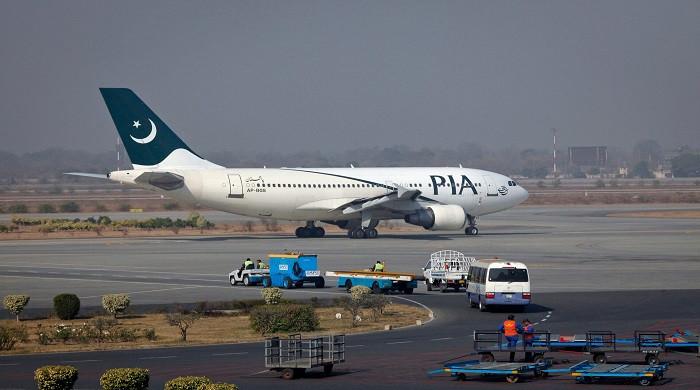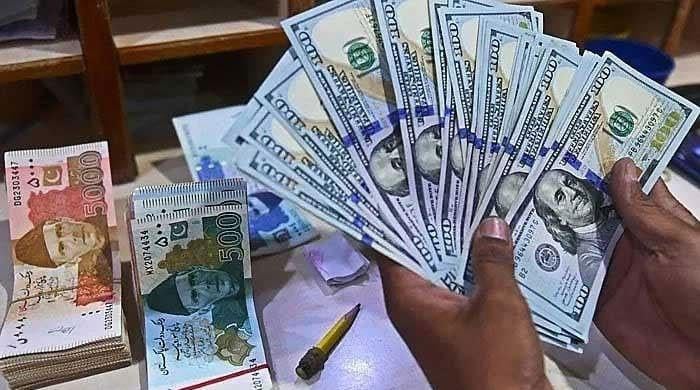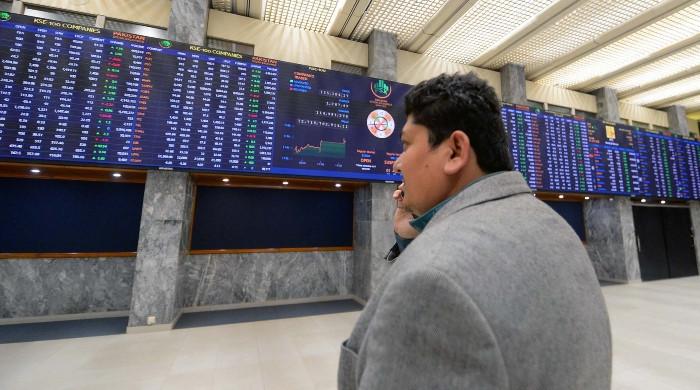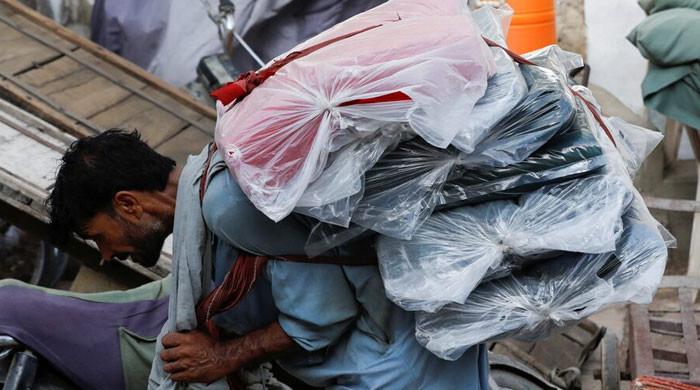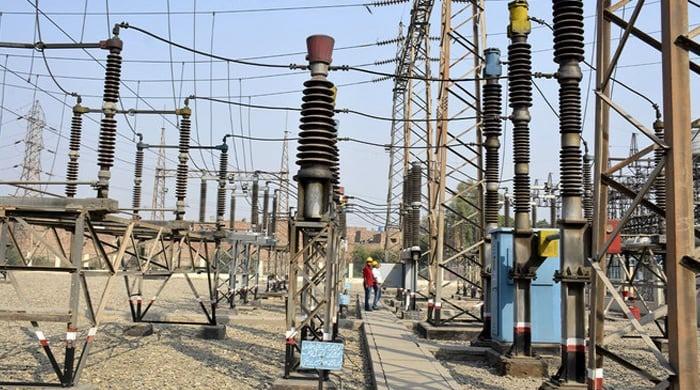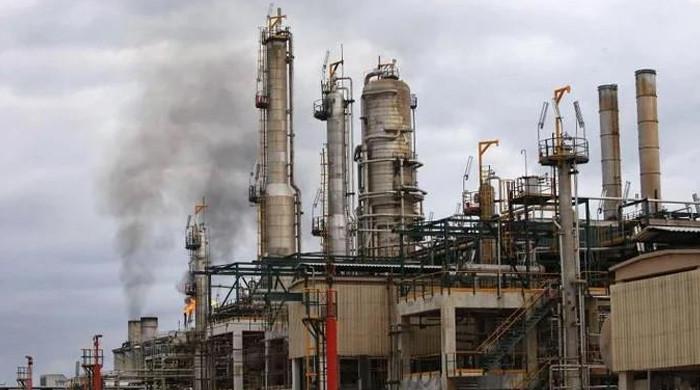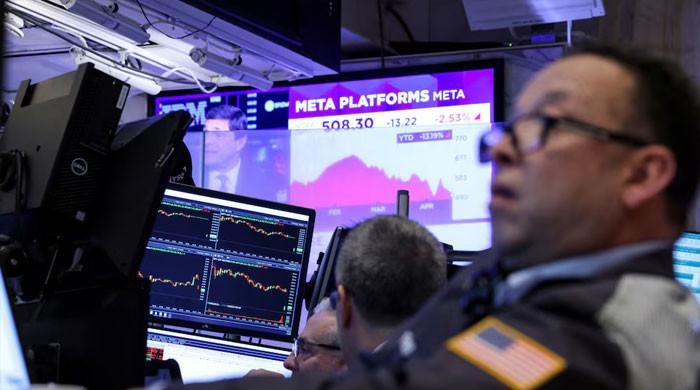FinMin Aurangzeb 'very optimistic' on unlocking IMF deal after tax-laden budget ratified
"The IMF programme is our assurance in terms of macro stability. We are taking it forward," says minister
June 30, 2024
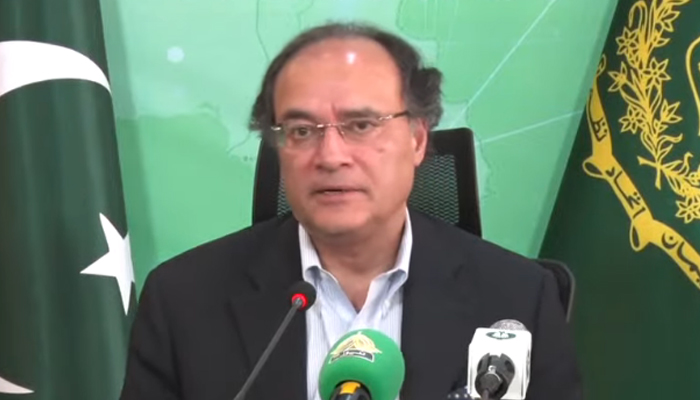
- Petroleum levy to not be imposed in next review.
- Finance minister says IMF programme inevitable.
- Says he sympathises with tax-burdened masses.
Finance Minister Muhammad Aurangzeb said Sunday he was "very optimistic" about Pakistan securing a new International Monetary Fund (IMF) bailout after President Asif Ali Zardari approved the tax-heavy budget for the next fiscal year beginning on July 1.
"The IMF programme is our assurance in terms of macro stability. We are taking it forward; it is inevitable. I'm very optimistic that we'll be able to take it through the finish line for an Extended Fund Programme which is going to be larger and longer in nature," the minister told reporters in Islamabad.
The cash-strapped federal government adopted a Rs18.9 trillion budget laced with tax-raising measures as it had sought to secure a new bailout from the IMF after almost defaulting last year.
In the budget, the government has increased the taxes on the already burdened salaried class, bought exporters into the normal tax regime, increased the petroleum levy to Rs70, and imposed new taxes on the real estate sectors, among others, to increase the tax collection.
Experts have said that while the financial blueprint is expected to help the struggling nation unlock a Fund deal, but also cautioned that it could lead to further inflation, which would draw public anger.
The finance minister, talking about the burden on the inflation-struck masses, said: "I completely understand the stress that people from different sectors feel about additional taxes; I completely empathise and sympathise, but we need to work for it."
The finance minister said he was clear-headed and would ensure that the government works to lessen the burden on the common people and businesses in the coming days by curbing leakages and improving the management system.
PDL
In the budget, the government has increased the petroleum development levy (PDL) by Rs10 per litre — from Rs60 to Rs70 — worrying the public as the petrol prices are already high.
But the finance minister stressed that this was not the case and that the levy was not being imposed immediately, meaning that when petrol prices are revised tonight, the levy would remain the same.
"There are talks about the PDL. I want to be very clear: the Rs70 limit that we've set, we're not going to impose it [right now]," Aurangzeb, a former banker, assured the journalists.
"This is a ceiling. In my first budget speech, I had set it at Rs80, which was later revised to Rs70 and it will not be imposed; it'll be kept as a headroom," the finance minister added.
Rs70 levy has also been approved for diesel, Rs50 per litre levy would also be imposed on light diesel oil and kerosene oil, while Rs70 per litre levy would be applicable on high-octane.
Taxation measures
In a nation of over 240 million people and where most jobs are in the informal sector, only 5.2 million filed income tax returns in 2022.
To boost tax collection, the government among other measures, blocked mobile phone SIM cards and will now also restrict non-filers from travelling abroad.
While the budget has been criticised for not bringing in new sectors into the tax net, the finance minister defended the financial blueprint and said that new sectors would be taxed.
"I'm repeating myself. When Miftah [Ismail] sb proposed taxing retailers in 2022, it should have been implemented. We cannot have any segment that is not contributing to society and the exchequer."
He also thanked 42,000 new retailers for registering themselves as of yesterday and they will be taxed from July.
"There should be no confusion that we aren't roping in new sectors. The same goes for the real estate sector, previously, the demand side was taxed [...] and now the supply side's income will also be taxed."
He added that non-filers should not exist. "In this particular budget, we have taken it to the punitive level so as to make the non-filers realise that they [have to file their taxes]."




